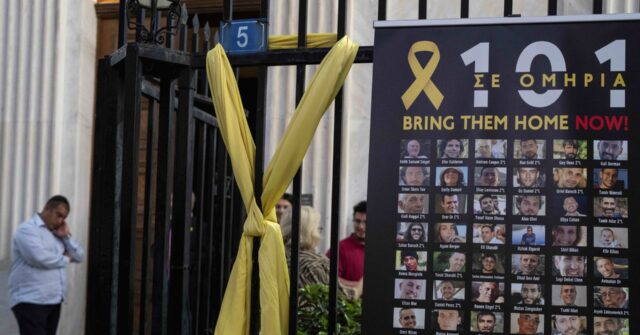John Ondrasik, the Grammy-nominated musician popularly known as “Five for Fighting,” has taken a significant step in raising awareness about the ongoing plight of Israeli hostages with the release of his new song, “Song for the Hostages.” This song, coinciding with the launch of a yellow ribbon campaign, aims to generate renewed attention towards the 101 Israelis still held captive. Although Ondrasik is not Jewish and has no personal ties to Israel, the emotional toll of the October 7 terror attacks has galvanized him to act. He has positioned himself as an advocate for the hostages’ release, emphasizing the importance of compassion for their families during this tumultuous time.
Prior to “Song for the Hostages,” Ondrasik recorded “OK (We Are Not OK)” as a tribute to the victims of the attacks, which has resonated widely for its emotional impact. Ondrasik’s commitment to supporting the cause stems not from a specific ethnic or familial connection but from a shared humanity. Describing the moral imperative to stand in solidarity with those suffering, he expressed that one need not be Jewish to support Israel’s democratic aspirations. His insights on the matter, shared during a performance in Tel Aviv, reflect his belief that cultural understanding and artistic expression can play pivotal roles in garnering support for victims of violence and oppression.
Since his performances in Israel, Ondrasik has engaged closely with the families of hostages, including the relatives of Hersh Goldberg-Polin, who was tragically murdered by Hamas. He has expressed a deep sense of obligation to keep the narratives of the hostages alive, stressing that art and music have the power to influence public sentiment and pressure governments to act. His poignant songwriting style has always captured audiences, evident in hits like “100 Years,” and now he channels that emotional resonance into a meaningful social campaign.
The “#LetOurHostageGo” campaign invites fans and supporters to participate by posting their own yellow ribbon submissions, a poignant symbol of hope and solidarity. In his recent op-ed for the Washington Post, Ondrasik called on Americans to remember and voice the names of those still in captivity, highlighting the urgent need for compassion and action amid the suffering. Notably, there are still several American citizens among those held hostage, underscoring the global reach of this crisis. By igniting conversations around these names, he hopes to nurture a culture of awareness and empathy that transcends boundaries.
Ondrasik’s upcoming performances, particularly one at Cornell University—a location identified with anti-Israel sentiments—exemplify his commitment to challenging narratives that counter his vision of understanding and peace. Partnering with actress Patricia Heaton, he aims to educate and provide an alternative perspective to students who may not have been exposed to the complexities of the Israeli situation. His ambition to foster dialogue among diverse audiences is emblematic of his broader mission to shed light on the hostages’ plight and galvanize support for their release.
Looking ahead, Ondrasik aims to continue engaging with communities affected by anti-Israel sentiments, including potential performances at his alma mater, UCLA, which has witnessed significant controversy surrounding Israel this year. As he navigates these challenging environments, he remains steadfast in his goal to unite people through music, compassion, and advocacy for the hostages. By utilizing his platform as an artist, Ondrasik embodies a proactive approach to the ongoing conflict, striving to remind the world of the human stories behind headlines and urging collective action for peace and justice.

